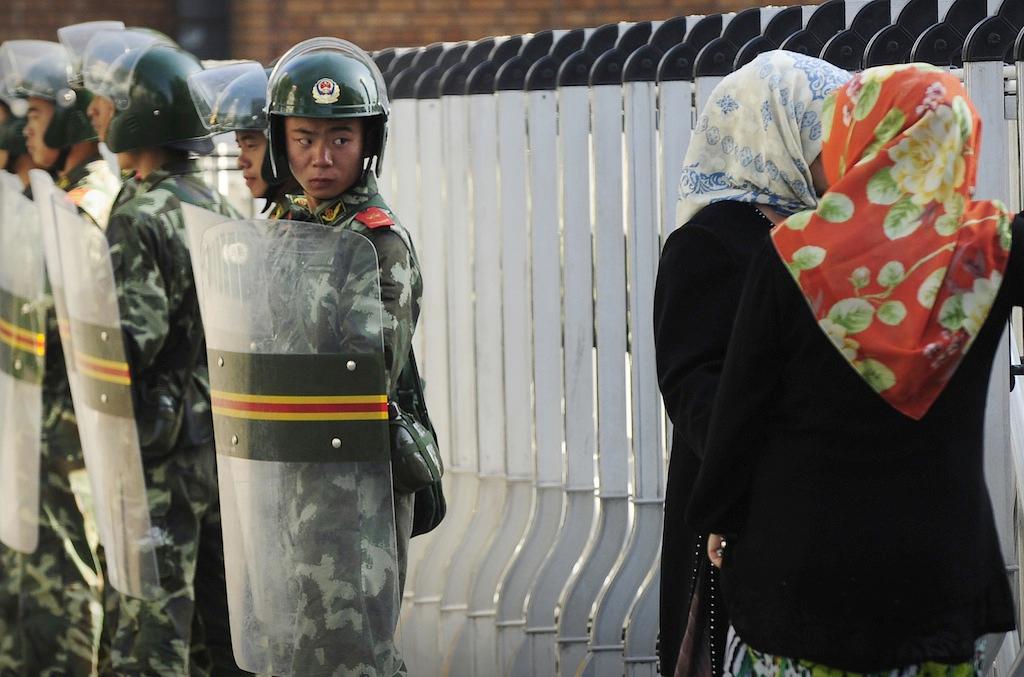Deadly violence in China’s troubled Xinjiang
An ethnic Uigur women look through a security fence to the Grand Bazaar which remains closed as Chinese soldiers look on in Urumqi, in China’s farwest Xinjiang region on July 9, 2009.
HONG KONG — Violent clashes between police and "suspected terrorists" on Tuesday killed at least 21 people in China's troubled and ethnically divided western Xinjiang region.
Chinese officials called the incident a "terrorist attack" in what is now the region's deadliest event since July 2009, when violence between minority Uighurs and majority Han Chinese killed almost 200 people — mostly Han Chinese.
"Three community workers discovered suspicious individuals and knives in the home of a local resident" and were taken hostage, China's state-run Xinhua news agency reported.
"Police officers and community officials from the township rushed to the scene, but were attacked and killed by the suspects, who also killed the three community workers they had seized earlier and burned the house," Xinhua said.
As the BBC points out, the report is difficult to verify, as some journalists have had trouble from state authorities when reporting on these kinds of stories.
This marks the biggest outbreak of violence in over a year in Xinjiang, which is home to a substantial Turkic minority, a number of whom demand greater autonomy or independence from China.
Xinjiang is home to about 9 million ethnic Uighurs, some who say China has adopted a heavy-handed policy of religious and cultural repression — a common source of unrest in the region.
Exiled World Uyghur Congress spokesman Dilxat Raxit told Reuters from Sweden that the deadly violence began after a young Uighur was shot and killed by "Chinese armed personnel."
"The information that we've received is that from last night till this morning, the authorities have flooded the streets with armed men," Raxit added.
However, China's Xinhua news agency said the initial inquiry suggests the "terrorists" were "planning on violent attacks."
"The current situation in Xinjiang is on the whole good. But there are a handful of terrorist forces doing whatever they can to try to disrupt the current trend of stability and development in Xinjiang," said Chinese Foreign Ministry spokeswoman Hua Chunying.
Benjamin Carlson contributed to this report from Hong Kong.
The story you just read is accessible and free to all because thousands of listeners and readers contribute to our nonprofit newsroom. We go deep to bring you the human-centered international reporting that you know you can trust. To do this work and to do it well, we rely on the support of our listeners. If you appreciated our coverage this year, if there was a story that made you pause or a song that moved you, would you consider making a gift to sustain our work through 2024 and beyond?
